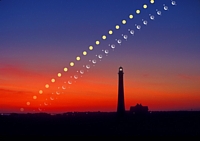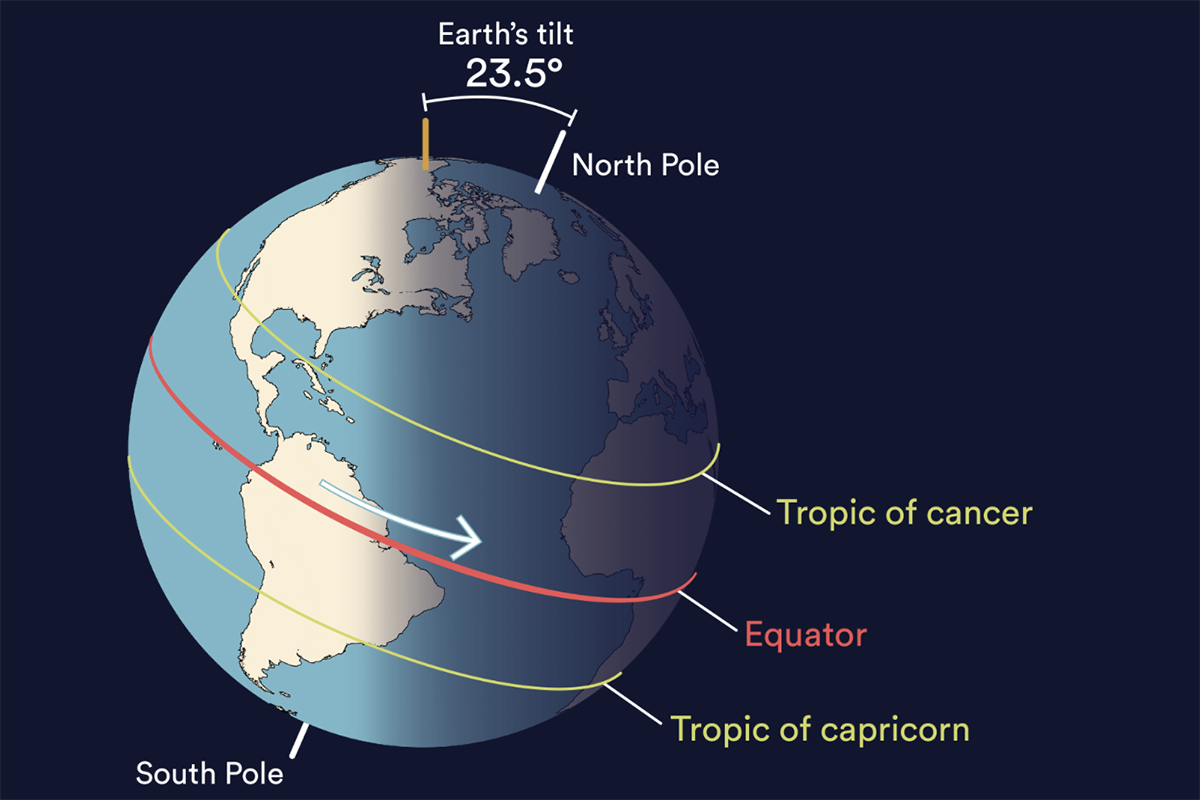Precession and Nutation
Is called Precession to a "wobbling" or "pitch" movement of the Earth's axis on the celestial sphere, which is equivalent to an angle of 23º 26′ with respect to the ecliptic. This displacement, analogous to that of a spinning top when it is about to stop, traces a complete circle every 25,800 years. Precession is caused by the gravitational influence of the Sun, Moon and planets on Earth. As a consequence, the position of the celestial poles changes slowly but progressively, as well as especially the position of the zodiacal constellations.
Is called Nutation to another oscillation of the Earth's pole around its position on the celestial sphere, due to the gravitational influence of the Moon. This displacement causes the poles to trace a "loop" every 18.6 years, moving about nine seconds of arc. The word nutation comes from the Latin “nutare” meaning “to oscillate, to nod.”
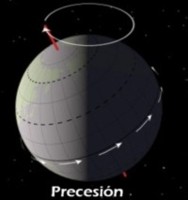
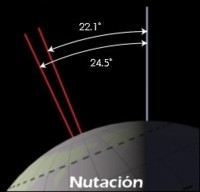
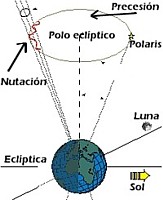
Ecliptic
It corresponds to the imaginary plane where the Earth's orbit around the Sun is contained, as well as the orbit of most of the planets, which are within or very close to it (except Pluto). The ecliptic line from the Earth marks the path taken by the Sun, the Moon, the planets and the zodiacal constellations throughout the year. The obliquity of the ecliptic with respect to the celestial equator is approximately 23.5º. The ancients called this line of the sky that way because eclipses occur there.
